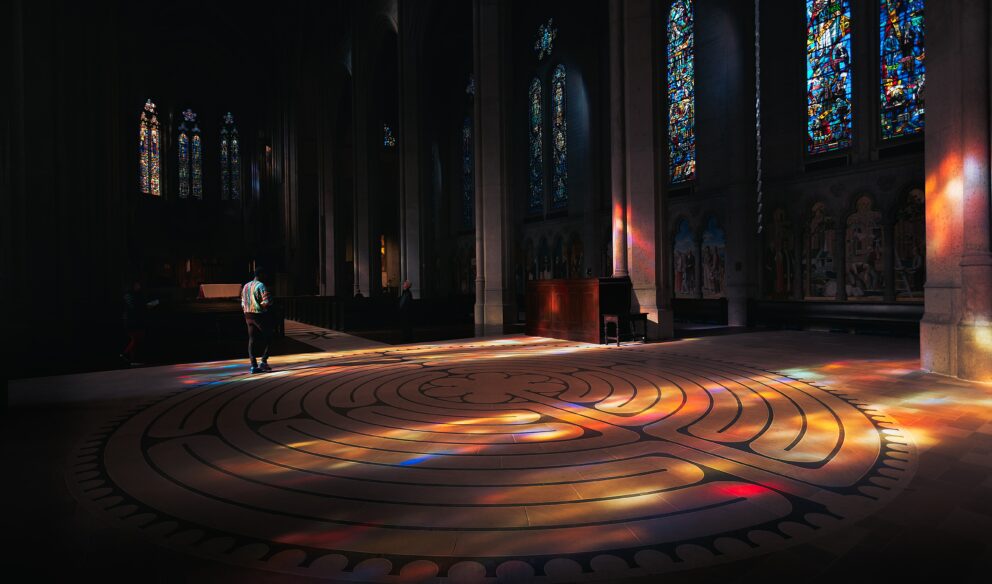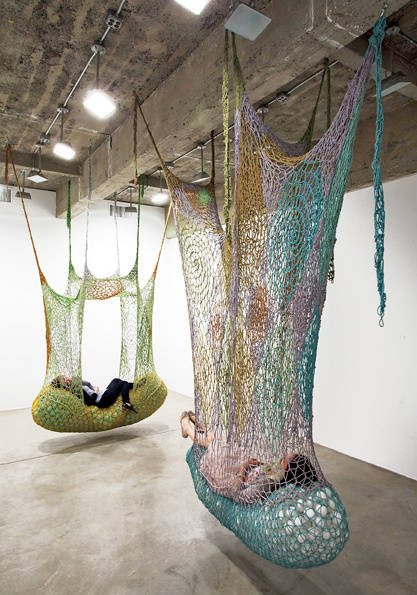Symposium: Psychedelics and Spiritualities – A Journey to Therapy and Beyond
Prof. Dr. Roland Griffiths
Prof. Dr. David B. Yaden
Dr. sc. hum. Henrik Jungaberle
Prof. Dr. Timo Storck
Dr. Andreas Weber
Henry Harder, BSc.
Hannah Dressler, MSc.
Luca Färber, MA, MSc.
Christopher Schmidt
Marvin Däumichen, M.A.
- 02/09/2023
- 09:30 - 12:30
- Room: Auditorium (2nd floor)
Abstract
| Time | Content | Length | Speaker/Moderator | Comment |
| 9.30 | Opening | 15 min | Henrik | Explaining the symposium goalsIntroducing the speakers (Affiliation and brief personal connection/agenda related to “Science and spiritualities”) |
| 9.45 | The Varieties of Spiritual Experience | 40 min | David Yaden | Providing a conceptual starting point/framework for our discussions |
| 10.15 | Brief questions from the audience | 5 min | Henrik | About understanding and concepts, no deep-diving discussions yet |
| 10.20 | Bodies are Love Processes | 20 min | Andreas Weber | Presenting a biophilosophical perspective as an example of a science-related, interdisciplinary narrative that could be related to personal spiritualities.
|
| 10:40 | Panel 1: The qualities of experience related to psychedelics that may make them “spiritual” – and what can people “do” with it? | 30 min | Moderated by Henrik Jungaberle
Sandeep Nayak, David Yaden, Andreas Weber, Audience |
1. Are there qualities and characteristics that make psychedelic-inspired spiritualities special and thus different from the numerous forms of historical and ancient spiritualities?
– For example, is there a special opportunity or relatedness of psychedelic spiritualities to ecological consciousness? If so, how does this relationship arise?
– Which challenges on the level of patient-therapist relationship and on the level of indidivual-society arise from “psychedelic-inspired” spiritualities?
|
| 11.10 | Break | 10 min | If needed. Henrik needs to change symposia because of Corona-related dropouts in the other symposium | |
| 11.20 | Spiritual and Existential Themes as Experienced by EPIsoDE Psilocybin Trial Patients
|
40 min | Henry Harder, Hannah Dressler, Christopher Schmidt and Luca Färber | Patient reports from the EPIsoDE study related to existential experience and spiritualities |
| 12.00 – 12.30 | Panel 2: Ethics, potential and pitfalls of patient spiritualities and therapist spiritualities | Moderated by Marvin Däumichen
The four, Sandeep, David, Audience |
3. Do spiritual experiences occur “naturally” as a result of experiences with psilocybin and co. in psychedelic therapy?
– How should physicians and psychotherapists deal with psychedelic-inspired spiritualities?
– How should friends, acquaintances, and society in general respond to spiritualities that grow out of the psychedelic experience – whether these result from a therapeutic context or through non-clinical psychedelic practices?
IF WE HAVE TIME Discuss “Theories of Change” and their rationality (or irrationality). Potential societal change through psychedelic spiritualities. In particular, we will also look at risks and deviations occuring in “spiritual practices” in and outside of psychedelic therapy. |
Which ethical questions are connected to psychedelic-inspired spiritualities? And what attitude should education, politics, and psychotherapy develop towards psychedelic spiritualities as the field grows?
The two times 90-minute symposium deals with the role of spiritualities in and for therapy with psychedelic substances. However, the symposium also goes beyond the therapeutic context and asks about the nature and significance of “psychedelic spiritualities” for society as a whole.
1. Are there qualities and characteristics that make psychedelic-inspired spiritualities special and thus different from the numerous forms of historical and ancient spiritualities?
- Is there a special opportunity or relatedness of psychedelic spiritualities to ecological consciousness? If so, how does this relationship arise?
- How do such possible qualities and characteristics relate to psychotherapy?
2. What opportunities and risks does a psychedelic-inspired spirituality create?
- How do science, spirituality, and religion relate to each other? Which societal dangers become visible here and how should open and pluralistic societies shape this relationship?
3. Do spiritual experiences occur “naturally” as a result of experiences with psilocybin and co. in psychedelic therapy?
- How should physicians and psychotherapists deal with psychedelic-inspired spiritualities?
4. Could psychedelic-inspired spiritualities have an influence on the required transformation of global societies? If so, what exactly would this influence look like – i.e. what theory of change can be imagined here?
- How should friends, acquaintances, and society in general respond to spiritualities that grow out of the psychedelic experience – whether these result from a therapeutic context or through non-clinical psychedelic practices?
The symposium flows in two parts. The first part will start with a founder of the psychedelic renaissance, Prof. Dr. Roland Griffiths as well as Prof. Dr. David Yaden, both from Johns Hopkins University – and both engaged in their own way with the topic of a psychedelic spirituality.
This will be followed by a contribution from Dr. Andreas Weber, a biologist and philosopher, who will explore the relationship of modern humans to nature, discussing a possible role and relationship with the psychedelic experience.
After the lectures, in the first panel, we will mainly discuss the question of the special qualities and characteristics of psychedelic spiritualities.
The second part of the symposium will begin with a presentation of patient experiences from the EPIsoDE psilocybin study related to spirituality. Qualitative interviews will be reviewed for accounts of spiritual and existential issues. The reporting style is initially rather descriptive, while in the second part concepts from Victor Frankl’s logotherapy and Ervin Yalom’s existential psychotherapy are used to order the patient testimonies.
Henrik Jungaberle will close with a contribution dealing with Gelassenheit, integration and escapism related to psychedelic-inspired spiritualities: “Sweet blasphemy – how could psychedelic spiritualities benefit from existential psychotherapy and philosophy?”
In the final panel, we will focus on the topic of potential personal and societal change through psychedelic spiritualities. In particular, we will also look at risks and deviations occuring in “spiritual practices” in and outside of psychedelic therapy.
Which ethical questions are connected to psychedelic-inspired spiritualities? And what attitude should education, politics, and psychotherapy develop towards psychedelic spiritualities as the field grows?


Presentation: Bodies are Love Processes
Dr. Andreas Weber
A living being is neither a material object, nor a mind independent from matter. A living being is a semi-detached compartment of the world to which it creates its connection and separation through the uptake and management of parts of this same world. It is at the same time an existential subjective experience of being this world. Both perspectives – the material self-creation, and the experience of how this self-creation feels – are manifestations of the same underlying desire to bring forth life. From the embodied standpoint, this desire manifests in the self-creation and -repair of material individuality. From the experiential standpoint, this desire manifests as the subjective longing to bring forth one’s own life in interrelation with the lives of others. The mysterious “selfless self” (Francisco Varela) at the center of each organism can hence be understood as an impersonal, unconditional desire to give – as love – before any specification into inward experience or spatial extension.

Presentation: Sweet Blasphemy – How Could Psychedelic Spiritualities Benefit from a Scientific Perspective, Existential Psychotherapy and Philosophy
Dr. sc. hum. Henrik Jungaberle
How should we think about psychedelic-inspired and contemplative life philosophies and spiritualities? In this talk I will argue that ethical psychedelic practice in the 21st century needs to take a bold step into self-reflexive modernity. This applies both to clinical practice and to the role of psychedelics in lifelong learning and development.
On the one hand, this may involve a better understanding of the individualistic and naive “private religion of psychedelic experience”. It might also have to take into account that humans, like other animals, are deeply social beings who need to define their place in the universe together – in collaborative discourses with principles for reality checks. Such a rational discourse includes a critical examination of escapist and avoidance-based forms of spirituality and a healthy attitude towards the ambivalent role of religion in the history of psychedelics.
On the other hand, psychedelic-inspired spiritualities have the potential to challenge toxic individualism and excessive rationalism. They could even play a role in redefining humans’ relationship to other animals on the planet and their place in life on Earth. But how will these potentialities materialize? What needs to be done? I call this approach ecological humanism – and will argue for a set of principles that may help everyone, including therapists and patients, to explore the health of the relationship between their contemplative and psychedelic experience in their everyday lives.

Spiritual and Existential Themes as Experienced by EPIsoDE Psilocybin Trial Patients
Henry Harder, Hannah Dressler, Christopher Schmidt and Luca Färber
The EPIsoDE trial, a randomized, double-blind, active placebo-controlled, parallel-group phase II trial, is currently evaluating the efficacy and safety of psilocybin administered in a psychotherapeutic setting for treatment-resistant major depression (Mertens et al., 2022). Concurrently, we are conducting a qualitative study to explore the phenomenology of patients’ psychedelic experiences, their perspectives on therapy processes, and perceived mechanisms of change. Of 144 patients to be enrolled in the EPIsoDE trial, 62 patients have now completed retrospective semi-structured interviews after study completion. The average length of the interviews is 75 minutes. The interviews are analyzed using qualitative content analysis according to Mayring (2004). For INSIGHT, we have investigated whether and how patients experience spiritual and existential themes in psilocybin-assisted therapy, specifically regarding the subsequent questions.
- Do patients disclose spiritual or existential experiences within clinical environments? What do participants report regarding their pre-existing backgrounds and receptiveness towards these experiences?
(Christopher Schmidt and Hannah Dressler) - Do patients address meaning-related concepts as described by Frankl?
(Henry Harder) - Do patients engage with the four ultimate concerns as defined by Yalom?
(Luca Färber)
